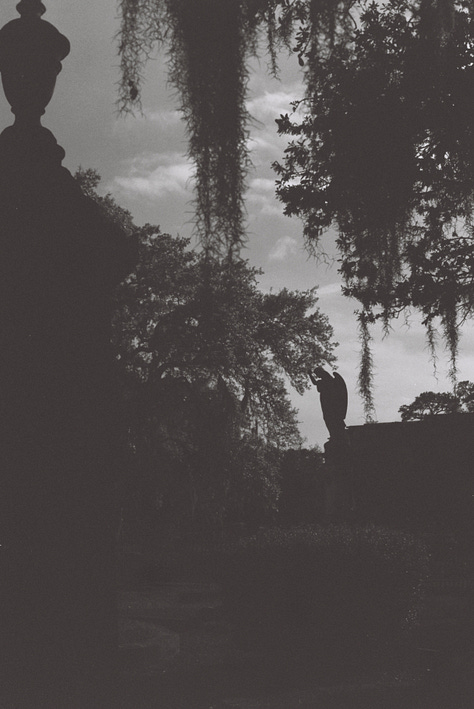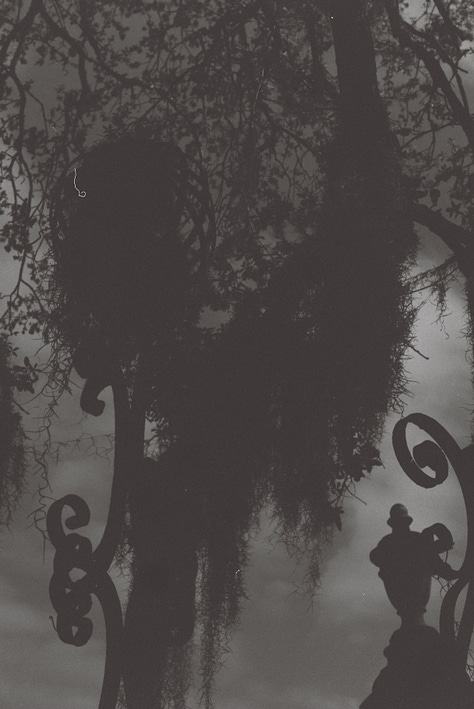Hold the Line
First they came for the Communists
And I did not speak out
Because I was not a Communist
Then they came for the Socialists
And I did not speak out
Because I was not a Socialist
Then they came for the trade unionists
And I did not speak out
Because I was not a trade unionist
Then they came for the Jews
And I did not speak out
Because I was not a Jew
Then they came for me
And there was no one left
To speak out for me
This poem by Martin Niemöller is getting a lot of play lately. I’ve heard it from childhood, as it has become part of the Jewish Holocaust cannon—a warning and a call to action against the insidious creep of fascism. I get the sense these days that it is being shared with the idea that we are at the beginning of the poem: now is the time to speak up for those being targeted, lest it becomes us tomorrow.
The truth is, we are at the end of the poem. We are experiencing the consequences of decades of casual disregard, of “not my problem,” of justifications for the dwindling rights of the Other. The American brand of Rugged Individualism™ that infects policy, empathy, and action gives an easy out: the mirage of “personal responsibility,” which is very much tied to the ideology of the “perfect victim.” We see this machine get to work with the quickness whenever something bad happens to someone. Whether it is an individual or a group, there’s a frenzied hunt for something that disqualifies them from receiving our empathy. Were they using drugs? Were they breaking a law, any law? Did they say something terrible 10 years ago? Why didn’t they just do xyz to avoid the bad thing? Instead of asking “where have we failed as a society that allowed this to happen?”, we ask “what did this person/group do to cause this to happen to them?” Once a detail is discovered that allows blame to be shifted, it’s on. A sigh of relief—oh good, we don’t have to be afraid of this bad thing happening to us, because we didn’t do xyz. Oh good, we don’t have to feel empathy for them, because they deserved it.
While our country’s rapid descent into fascism over the past four months is shocking to those it’s newly affecting, the reality is that the United States has been a fascist state for many groups for a long time/forever. Indigenous people, Black people, migrants, queers, sex workers, disabled people, and trans people have never enjoyed the full privileges and rights of a democratic society. It is these groups that have been come for first. It is the narrow-minded, individualistic, self-saving acquiescence to the violence perpetrated on the Other that has gotten us here.
Sex workers have been ringing the alarm bells for years and years about surveillance tech, border policing, free speech suppression, bodily autonomy, and financial discrimination. And well, well, well if the canary in the coal mine hasn’t come home to roost. Or something. Sex workers and other sexual minorities (most crucially in this moment, trans people) have long recognized that attempts to suppress bodily autonomy and sexual expression is one of the first warnings of impending fascism. Famously, one of the very first organized book burnings in 1933 Germany was of the extensive library at Magnus Hirschfeld’s Institute of Sex Research in Berlin.



In Neimöller’s life, I see echos of the sort of cowardly compromises being made today. After serving in WWI, he became a pastor. An early Hitler stan and vocally anti-Jewish, he was promised personally by Hitler that no laws targeting the church would be passed, and that there would be no pogroms against the Jews, which he (naïvely) believed. Merely two years later, he formed a group opposing the Nazis’ discrimination against church members who had converted to Christianity from Judaism (and yet still held his anti-Jewish beliefs.) For this, he was eventually interned in concentration camps for eight years. Even then, Neimöller offered to join the Nazi military in exchange for his release (this request was denied). To his credit, after the war he became an anti-war protester, condemned the Nazis, and acknowledged the guilt that churches had not done enough.
“One day, when it’s safe, when there’s no personal downside to calling a thing what it is, when it’s too late to hold anyone accountable, everyone will have always been against this.” - Omar El Akkad
I struggle between the feelings of wanting to nonjudgementally welcome people whenever they join the fight, and of anger and betrayal that those who hold power do not speak out until their road to do so is paved by the bodies of those more vulnerable. Is it the empathy gap? Is it pure chickenshittery?
In the past year and a half, I have met people who either didn’t know much at all about Israel-Palestine or actively supported Israel before October 7th, who have taken the difficult, brave, and yet highly accessible step of learning the truth of what is happening. I respect the humility and courage it takes to seek out knowledge, change one’s mind, and to say “I was wrong. I didn’t know enough. I’m here now.”
This feels very different though from the people who are in positions where they had the power to disrupt the backslide into authoritarianism—and only speak out when the harm done has reached catastrophic levels. When it’s too late, or very close to it. When silence no longer benefits them, or when they’ve felt a personal cost. Essentially, when they experience an external force that pushes them to action. “If you stand for nothing, you’ll fall for anything,” the saying goes.



We just passed the 82nd anniversary of the Warsaw Ghetto Uprising. It is fairly universally commended now as a heroic yet doomed last stand at resisting the Nazi death machine. Seeing the ugly shapes the world is making around me, and hearing Omar El Akkad’s words echoing in my ears, I grew curious about the contemporaneous reactions to the uprising. My hunch was correct: the gentile citizens of Warsaw were largely indifferent or even actively annoyed by the inconvenience of the smell of burning flesh and sound of gunshots as they went about their daily lives. To mark the 80th anniversary in 2023, the Polin Museum in Warsaw mounted an exhibit called “Thou Shalt Not Be Indifferent.” As part of this, they published a guidebook that included an article on the reactions of witnesses to the extermination campaign. It is chilling to read. It is chilling to hear the same kind of language used today.
I’m not the first to observe that people hold idealized fantasies of what they would do, of who they would be if they lived during past times of intense friction and big, earth-shaking events. I’m also not the first to say that whatever you’re doing (or not doing) right now is what you would be doing then. It’s an easy thing to imagine what we’d do if confronted with a situation, but the truth is that we really don’t know until we are in it. We can draw inspiration and caveats from the past, but what is most vitally important is right now.
It’s common in movement work to say “it’s never too late” to take action, to join, to learn, to change your mind and behavior. If I take a zoomed out view, I believe this is true. This is generational work; structural change takes a very long time, and of course we are going to need as many people on board as possible. We don’t want to shame people for working in their own time, and coming to join us when they are ready. But on a human level, a personal level—it is too late for thousands of precious souls, ancient structures, irreplaceable archives. Too late for shattered lives and families rent asunder by secret police, incarceration, lynchings. By polite neglect and spitting hatred. Too late for ecosystems sacrificed to corporate greed.
Atonement must be made, and yet shame and guilt must not block us from rolling up our sleeves now. In Judaism, the word teshuvah is often translated as repentance or reparations, but I prefer the meaning derived from the root: “a return to the land of the soul.” I believe in order to repair harm with others, regardless of whether we were the perpetrator, we must first atone to ourselves: return to the land of our souls, make repair where we have failed in our values. We must meet shame with open eyes and arms, greet it honestly and see what conditions have allowed it to moulder and spread inside ourselves.
In order to consider teshuvah complete, it is not enough to confess, to repent, or apologize. It is not enough to make the necessary repair. It is only complete when we face the same circumstance again, and we make a different choice. This concept of repentance does not allow one off the hook by confessing a sin alone. In essence: actions matter more than words.
Let’s be clear: it is late. Very late. We are at sail in a sea of grief, and not all ships will make it through the storms. But climbing aboard is an expression of hope, a dedication to life. Let us chart our course to return to the land of the soul.





